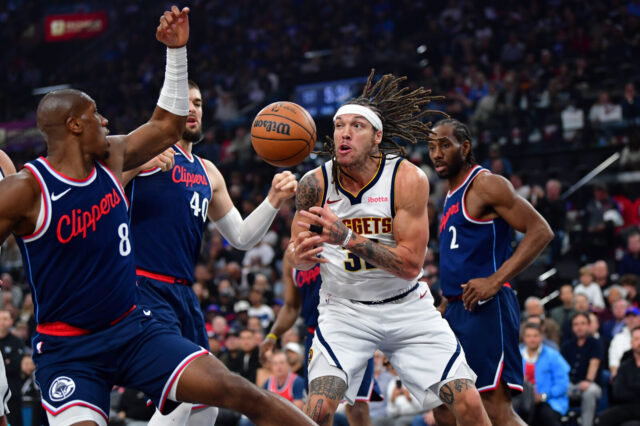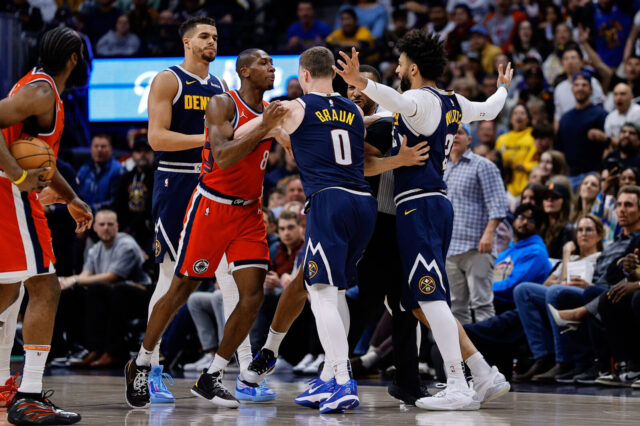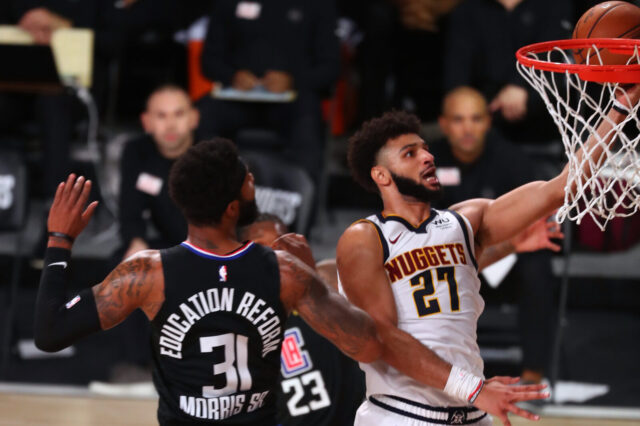Jared Butler felt like a lock to be selected before #26 just a few weeks ago, however, a pre-existing heart condition has prevented him from being cleared to participate in any basketball activities by NBA doctors. Butler committed to Alabama in 2018, but transferred to Baylor that same year after not being cleared by Alabama’s medical staff. He went on to play three straight seasons for the Bears that culminated in winning the 2021 NCAA National Championship, along with the tournament’s Most Outstanding Player Award.
Jared Butler, Combo Guard, Baylor
Vitals
Height: 6’3”
Wingspan: 6’4”
Weight: 193
Age: 20 (8/25/2000)
Strengths
Shooting
Butler poured in a career high 41.6% from three this past season and is capable at draining threes both on and off ball. His mechanics are fluid and repeatable and, despite having a slightly low release point, it was rarely a factor in the NCAA. It seemed for every open spot-up attempt he had, there was a step-back or extra deep one. This makes it seem very possible he could actually improve upon his already great three point shooting. If you’re still not convinced of his Butler’s jump shooting prowess, he also converted on over 50% of his spot-up three point attempts in 2020-2021.
Playmaking Potential
Jared’s NBA role is likely at likely as an off-ball guard, but it’s too soon to rule out the possibility of him being a primary playmaker. This seems a lot more likely to happen if Butler were to lead a bench unit, but he did show progress each season at Baylor by tightening his handle, displaying improved court vision, as well as better decision making on his passes. This is evident in the upward trajectory of his assist totals throughout his collegiate career and his career high 1.71 ast./t.o. ratio this past season. If Jared is strictly a shooting guard at the next level, it won’t be because of an inability to make plays for his teammates.
Defense
With 2 steals and just under half a block per game in 2020-2021, Jared is a very competitive and disruptive defender. The 0.4 blocks may not sound overly impressive, but when you factor in his relatively short arms and lack of explosion, it illustrates how great Butler’s timing is on defense. He doesn’t just take calculated risks that fill up the stat sheet though, Jared was also second on the Bears in defensive box +/- and tied for first in defensive win shares (min. 100 minutes played). Throw in that his opponents only shot 34.2% with him as the primary defender this past season and it’s evident Butler should be capable of defending smaller NBA guards. His combination of lateral quickness, off-ball awareness, and sheer effort mask his physical limitations and make him a pest on that end of the floor.
Improvement Areas
Physicality
Butler relies on basketball IQ and skill rather than premier athleticism and strength. If he’s not able to add muscle, he could be limited in the paint on both ends of the floor. This includes rebounding, as he was just an average rebounder for a guard in the NCAA. This isn’t to say Jared is some low-level athlete, but by NBA standards, he’s probably below average. He’s already made progress with his athleticism to a point where he had some impressive dunks this past season. It remains to be seen, however, how much more room for growth there is here.
In-between game/Finishing
While Jared’s 53% on field goal attempts at the rim is respectable enough, it doesn’t tell the full story here. When he is able to get to the rim with a defender trailing and no help side rim protection, it’s virtually a guaranteed bucket. Even if there is help, Butler has displayed flashes of craftiness to convert regardless. The main issue is when he is forced to his non-dominant left hand or attempts to finish through contact,
Butler takes the majority of his shots at the rim or from beyond the three point line, but when he does go to the mid-range, he looks uncomfortable. He can create space off dribble, however it often isn’t enough to make up for his slightly lower release while being more tightly guarded in the mid-range.
As he transitions to the Association, it will be more difficult to generate easy looks at the basket. That means without a reliable off-hand, floater, or additional strength to keep his body under control, his percentages at the rim could take a significant drop in the NBA.
Expected Outcome
Projected Draft Range: Mid 1st round – Early 2nd round
Denver Stiffs Big Board: 16th overall
NBA Comparison: Darius Garland/Bryn Forbes
Verdict
First and foremost, we wish Jared good health and hope he can continue doing what he loves by playing in the Association. Secondly, these unfortunate circumstance have caused Jared to begin sliding down many draft boards. This may put the Nuggets in prime position to potentially steal a well-rounded guard with lottery talent. If his heart condition is corrected or deemed safe to play through, Jared posses a combination of shooting, playmaking, and defensive chops that is much harder to find at the back end of the first round.
Highlights
This content is no longer available.


